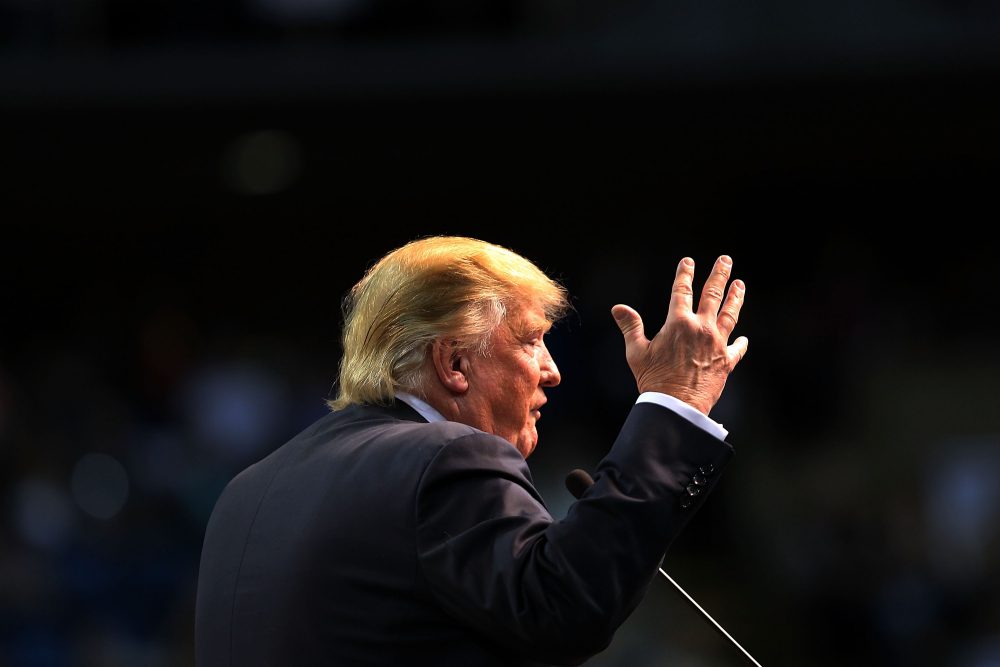Advertisement
Trump, Adviser Revive Talk Of Possible Muslim Registry

During the presidential campaign, Donald Trump raised the prospect of instating a Muslim registry and cited the United States' internment of Japanese Americans during World War II as precedent.
This week, Carl Higbie, a spokesman for a super PAC backing Trump, did so again. And a key member of Trump's transition team, Kansas Secretary of State Kris Kobach, said the idea of some kind of Muslim registry is on the table.
Here & Now's Robin Young talks with Dahlia Lithwick (@DahliaLithwick), who covers courts and the law for Slate, about the idea of a Muslim registry and the legal precedent that exists.
Interview Highlights
On internment during World War II being one of America's lowest moments
"Congress has reported that it was actually overruled by the court of history, presidents have apologized to the internees in the camps. And yet still, it stands as good law... The principle that's enshrined in [Korematsu v. United States], which is that the president has vast powers over immigration — particularly when they are national security issues — that principle, even though we all agree Korematsu was a disaster, that principle was still very much upheld by the courts. And so I think you can worry a little bit that this is not just an outlier opinion; it's of a long line of views that when the president says he's doing it for national security, the courts step back."
On internment of Japanese Americans during World War II
"There was just a general panic, and it was a feeling it was very much fed inside the White House and inside the military, that Japanese nationals in the United States were cooperating with the Japanese military to undermine U.S. security, and so they went ahead and created loyalty oaths and this mass internment that literally left Japanese-American families... they had to abandon their homes and their property and go register at camps. And I think that it's technically true what Kris Kobach is saying — we are not talking about interning nationals. What he's talking about is a program that was existing during the Bush administration, and it was defunct in 2011 — President Obama shut it down.
But there is a program for registering non-citizens who are here on all sorts of visas, particularly tourist visas and travel visas, only from Muslim-majority countries. And so we do have a sort of apparatus to do that, and while it doesn't look like internment camps, the principle is the same."
On the Bush administration's National Security Entry-Exit Registration System (NSEER)
"This is incredibly important, because I think Kris Kobach is explicitly referencing this program. And what he's saying is, 'Look, this is not Japanese internment. This is a program that existed and was actually in effect.' Most people didn't know about it. But the point of this program was to take certain groups — I think there were 25 countries — so this doesn't target Muslim, it just so happens that 24 of the 25 countries on the list were Muslim-majority countries. And then you would have these people who are here on non-immigrant visas have to check in, they would be interrogated, they would be finger-printed. And I should add that while lot of these people were swept up and deported as a result of this program, it was for trivial immigration infractions, not for terrorist activities. And one of the reasons that the program went defunct in 2011 wasn't simply because we didn't need it anymore, but it was considered repetitive, it was expensive, and it achieved none of the aims in terms of fighting terrorism that it was purported to be doing. And now we're holding it up as the model of something we could constitutionally do."
This segment aired on November 17, 2016.